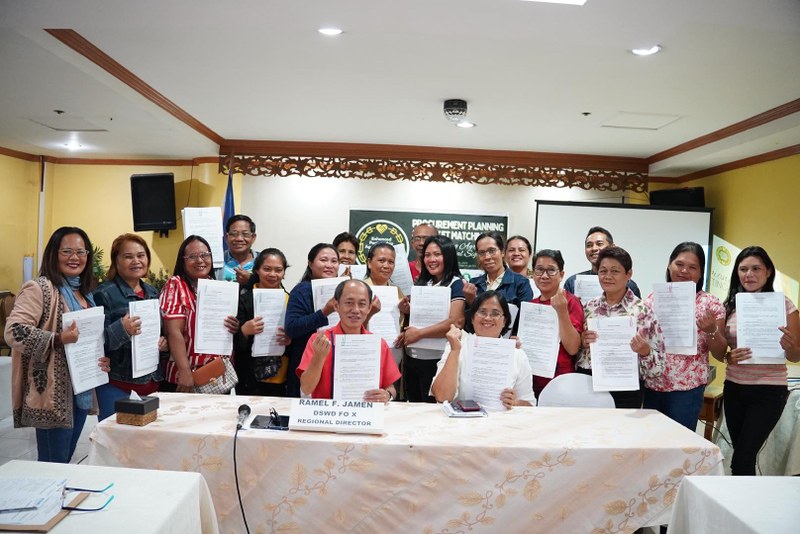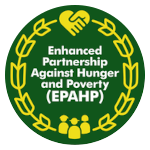
SLP associations sign deals with DSWD Field Office X for marketing, food needs
Associations belonging to the Sustainable Livelihood Program (SLP) have formally signed a Memorandum of Agreement with the DSWD (Department of Social Welfare and Development) Field Office X to supply vegetables needed to feed the centers' clients.
DSWD Field Office X Regional Director Ramel F. Jamen and DSWD Center monitor Sonia Ipang led the agency in signing the deal with the 18 associations, represented by their respective presidents.
The agreement stemmed from Director Jamen's directive to the workers of the Enhanced Partnership Against Hunger and Poverty (EPAHP) X to help solve the marketing needs of DSWD Field Office X-run centers in April this year.
EPAHP X started to link the SLP associations to two centers (Haven for Women and Bahay Silungan) to provide goods needed to feed the clients.
This time, all five centers—the Regional Studies Center for Children, Home for Girls, Regional Rehabilitation Center for the Youth, Haven for Women, and Bahay Silungan, would enjoy the fresh vegetables coming from the farmers.
EPAHP X’s RPMO team, together with the SLP Project Development Officers and Partnership Officers, tapped the associations for the food requirements of the clients inside the centers.
The five centers provide temporary shelter for clients who are abandoned, neglected, foundlings, abused, or children in conflict with the law.
These centers, which provide daily meals for the clients, have difficulty purchasing the raw materials they need.
Whenever they purchased goods for the market, they used their one and only vehicle for transportation.
The problem arises when the vehicle will also be used, at the same time, for another pressing purpose, such as court hearings.
With the agreement, the centers would be able to save time, fuel, and effort in going to the market and, at the same time, would be able to help the SLPA beneficiaries ensure the sustainability of their livelihood projects.
